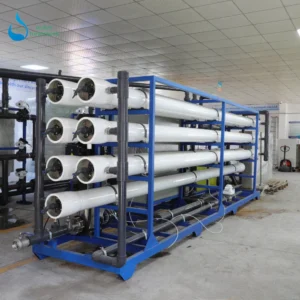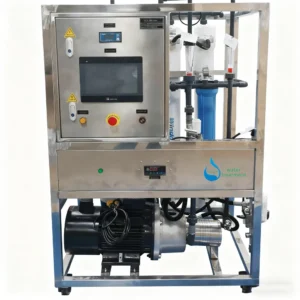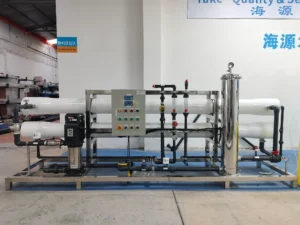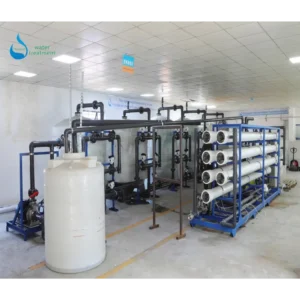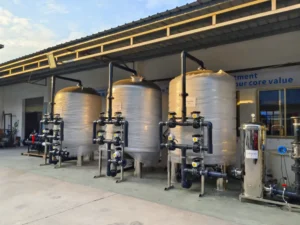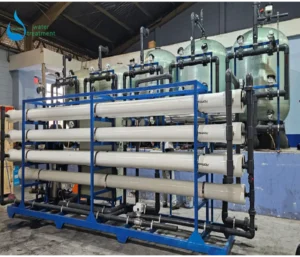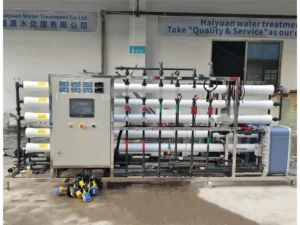How a Reverse Osmosis Water Machine Provides Clean Water
Access to clean and safe water is essential for households, businesses, and industries around the world. However, not all water sources meet drinking or process water standards. This is where a reverse osmosis water machine becomes a powerful solution. With advanced membrane technology, it removes dissolved salts, heavy metals, bacteria, and impurities, delivering high-quality water for multiple applications.
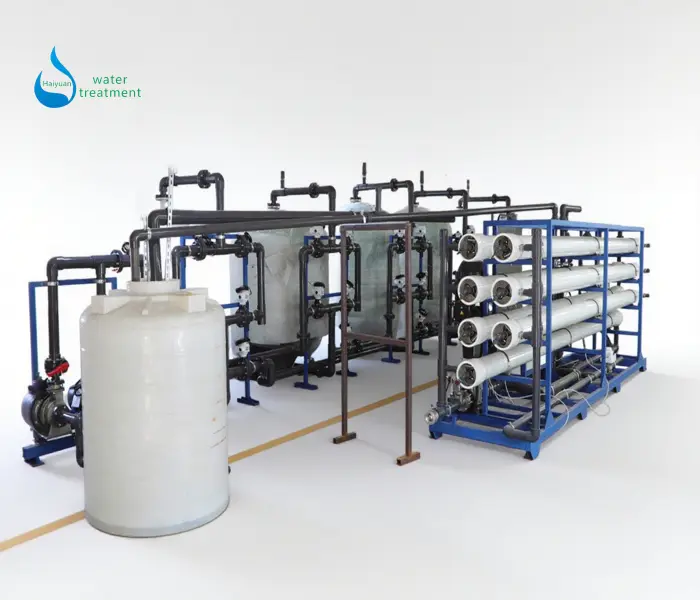
What is a Reverse Osmosis Water Machine?
A reverse osmosis water machine is a water purification system that uses semi-permeable membranes to filter out contaminants. Under high pressure, water molecules pass through the RO membrane while salts, minerals, and impurities are rejected. The result is pure, fresh water suitable for drinking, food processing, pharmaceuticals, or industrial use.
Key features include:
-
High salt rejection rate (up to 99%).
-
Consistent water quality regardless of raw water conditions.
-
Customizable design for small-scale residential or large-scale industrial use.
-
Energy-efficient and sustainable compared to traditional water treatment methods.
Reverse Osmosis Water Machine Process Flow:
1. With Chlorination and Chemical Dosing
Automatic chlorination device → Raw water tank → Booster pump → Multi-media filter → Activated carbon filter → Softener → Scale inhibitor dosing → Chemical reducing agent → Cartridge filter → High-pressure pump → RO system → UV sterilizer → Product water tank
Suitable for raw water containing bacteria, chlorine, and hardness, ensuring safe and stable operation of the RO membranes.
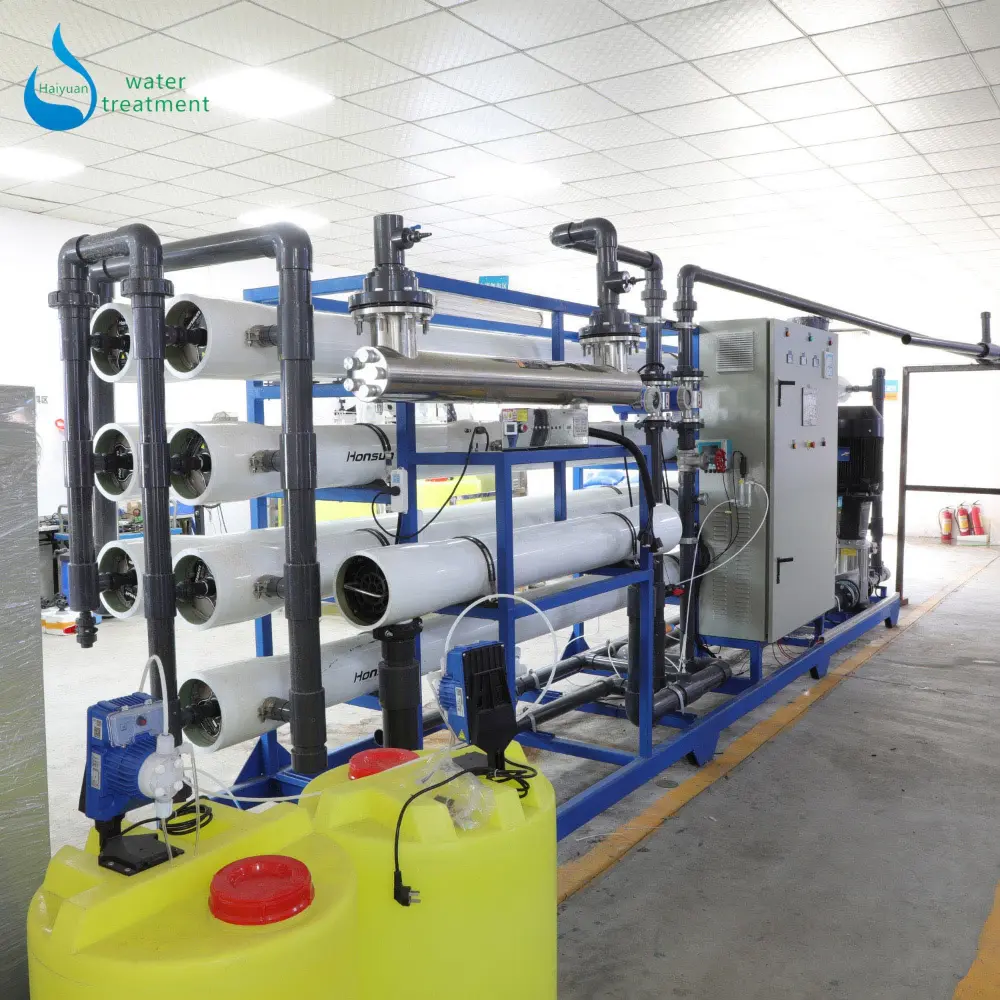
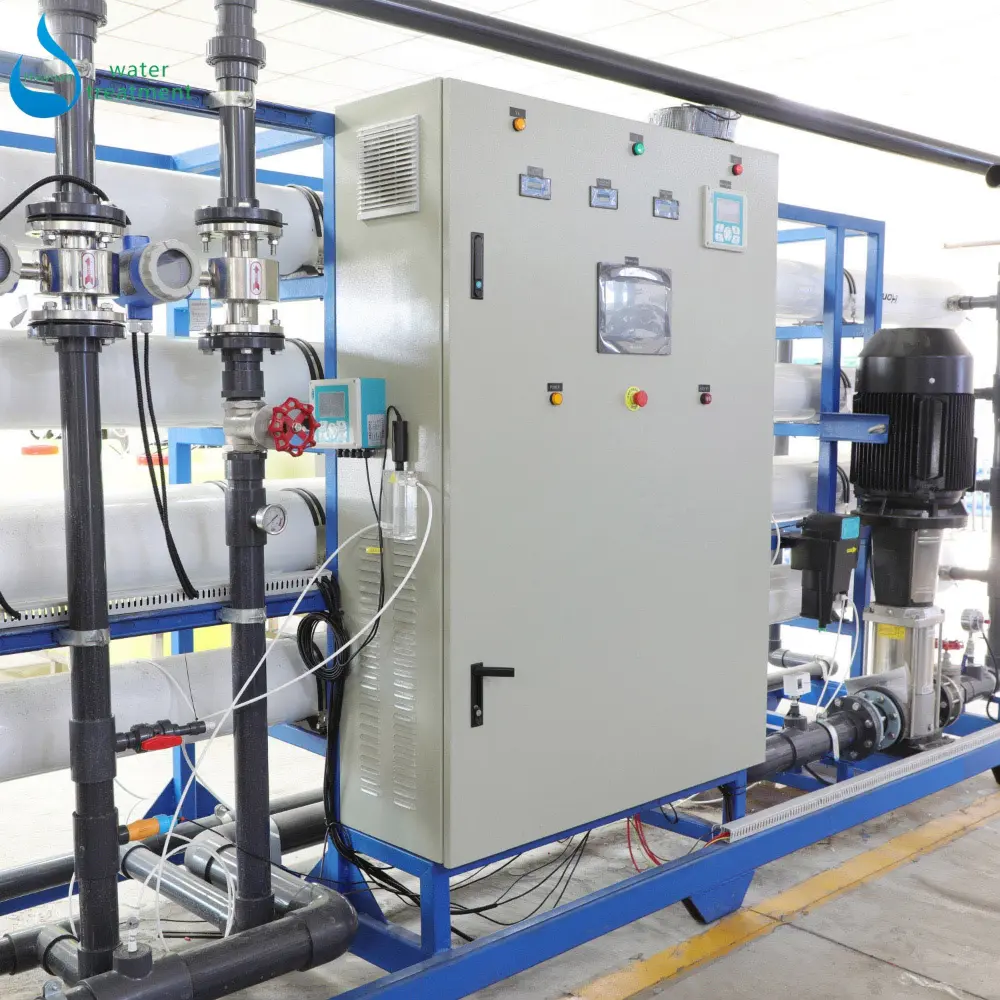
2. With Ozone Disinfection
Raw water tank → Booster pump → Multi-media filter → Activated carbon filter → Softener → Cartridge filter → High-pressure pump → RO system → UV sterilizer → Ozone generator → Product water tank
This process is designed for drinking water purification, where strong sterilization and long-term storage stability are required.
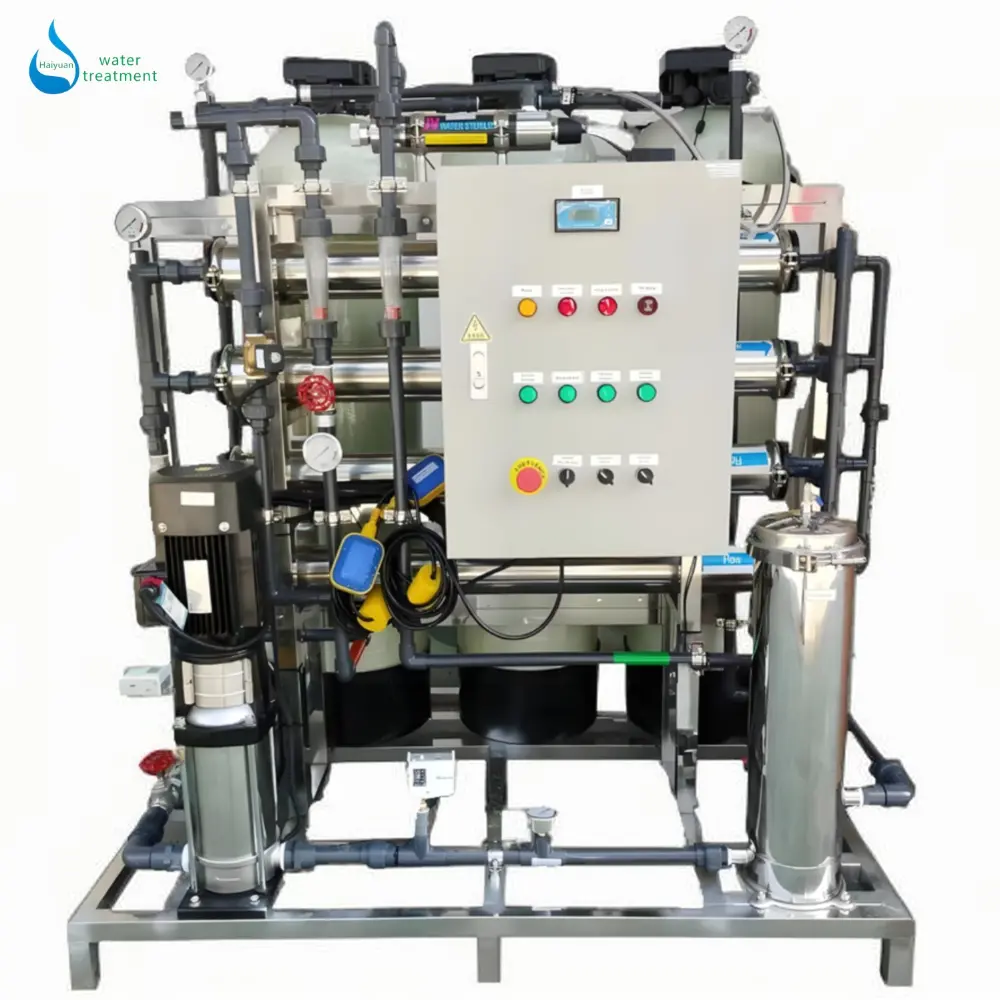
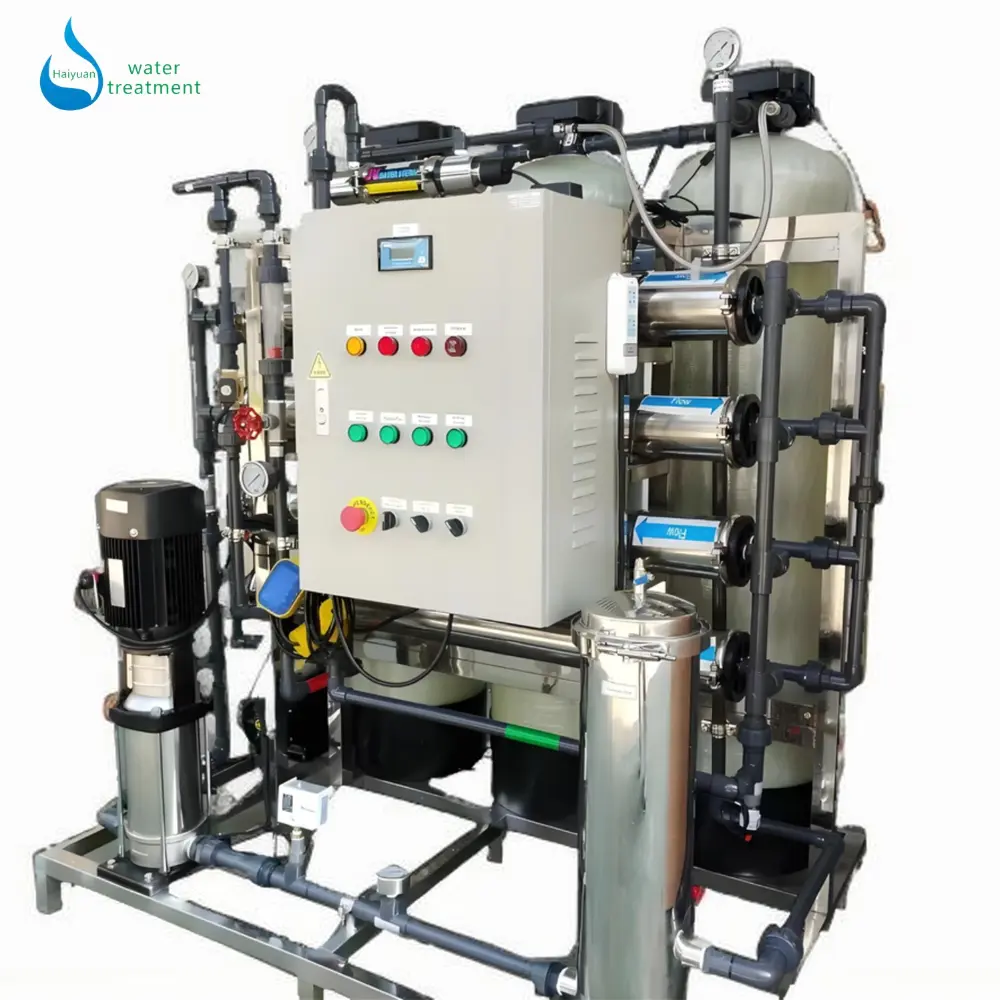
3. Two-Stage RO System (Double Pass)
Raw water tank → Booster pump → Multi-media filter → Scale inhibitor dosing → Cartridge filter → First-stage high-pressure pump → First-stage RO (CIP optional) → Intermediate water tank → Second-stage high-pressure pump → Second-stage RO → Product water tank
Recommended for high-salinity or high TDS water sources, providing higher water quality with double desalination.
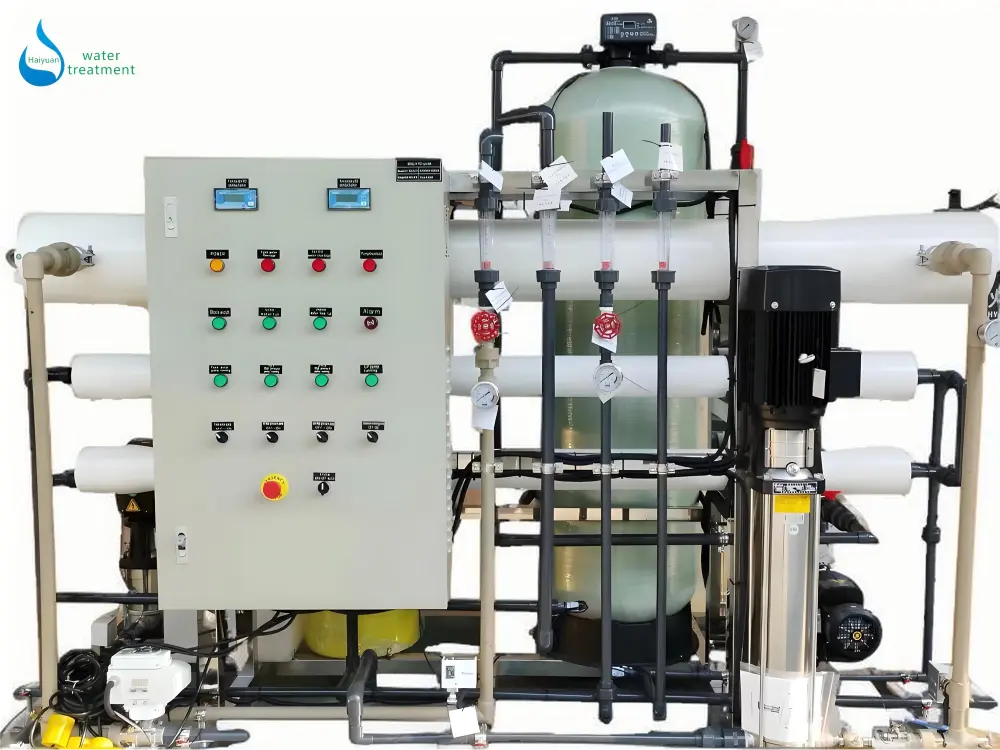
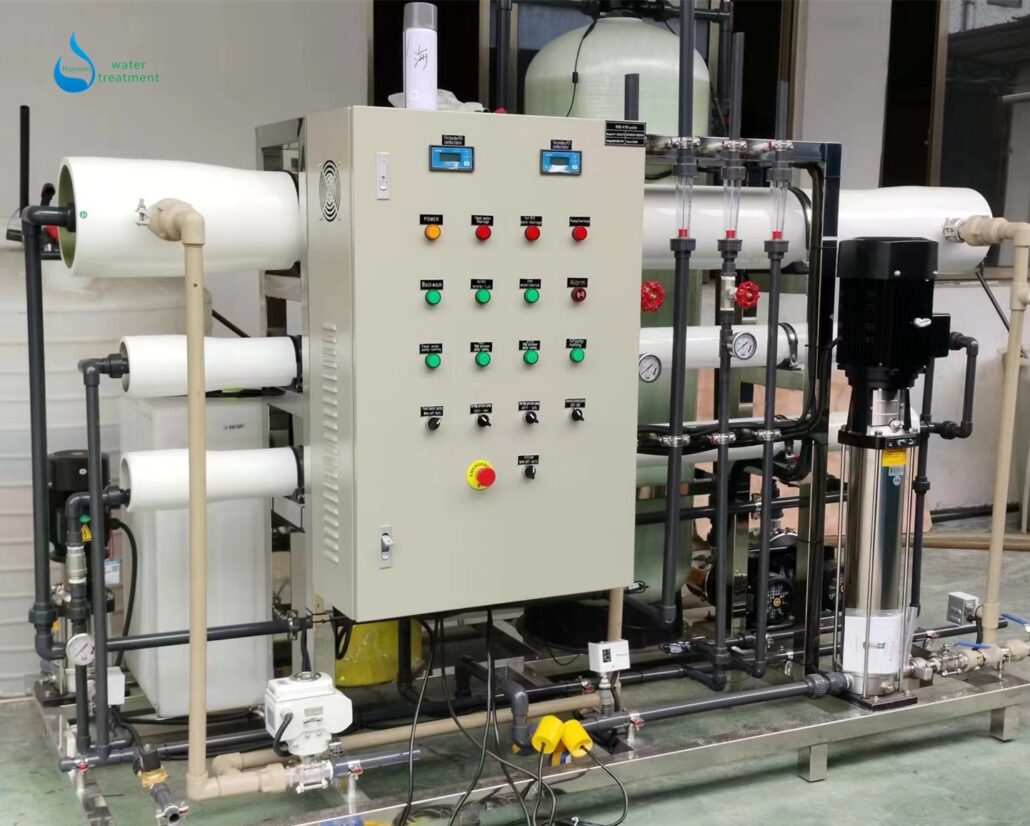
Applications of Reverse Osmosis Water Machine
Depending on the system size and design, reverse osmosis water machines are widely used in:
-
Drinking water purification – ensuring safe and great-tasting water.
-
Food and beverage industry – providing clean water for production and quality control.
-
Pharmaceutical and electronics – producing ultrapure water free from minerals and bacteria.
-
Agriculture and irrigation – reducing salinity in groundwater to protect crops.
-
Desalination – converting seawater into fresh water in coastal or island regions.
Advantages of Using a Reverse Osmosis Water Machine
-
Effective Purification – Removes up to 99% of dissolved solids, bacteria, and harmful substances.
-
Scalability – Systems can be customized from 50 L/h to over 100 m³/h depending on user needs.
-
Cost-Effective Operation – Long-lasting membranes and energy-efficient pumps reduce operating costs.
-
Versatility – Works with well water, brackish water, or seawater sources.
Choosing the Right Reverse Osmosis Water Machines
When selecting a system, it is important to consider:
-
Raw water TDS (Total Dissolved Solids) level.
-
Daily water demand (capacity requirement).
-
Installation type – skid-mounted, containerized, or solar-powered.
-
Maintenance and after-sales service availability.
Working with a professional water treatment equipment manufacturer ensures you get a tailored solution that fits your project requirements.
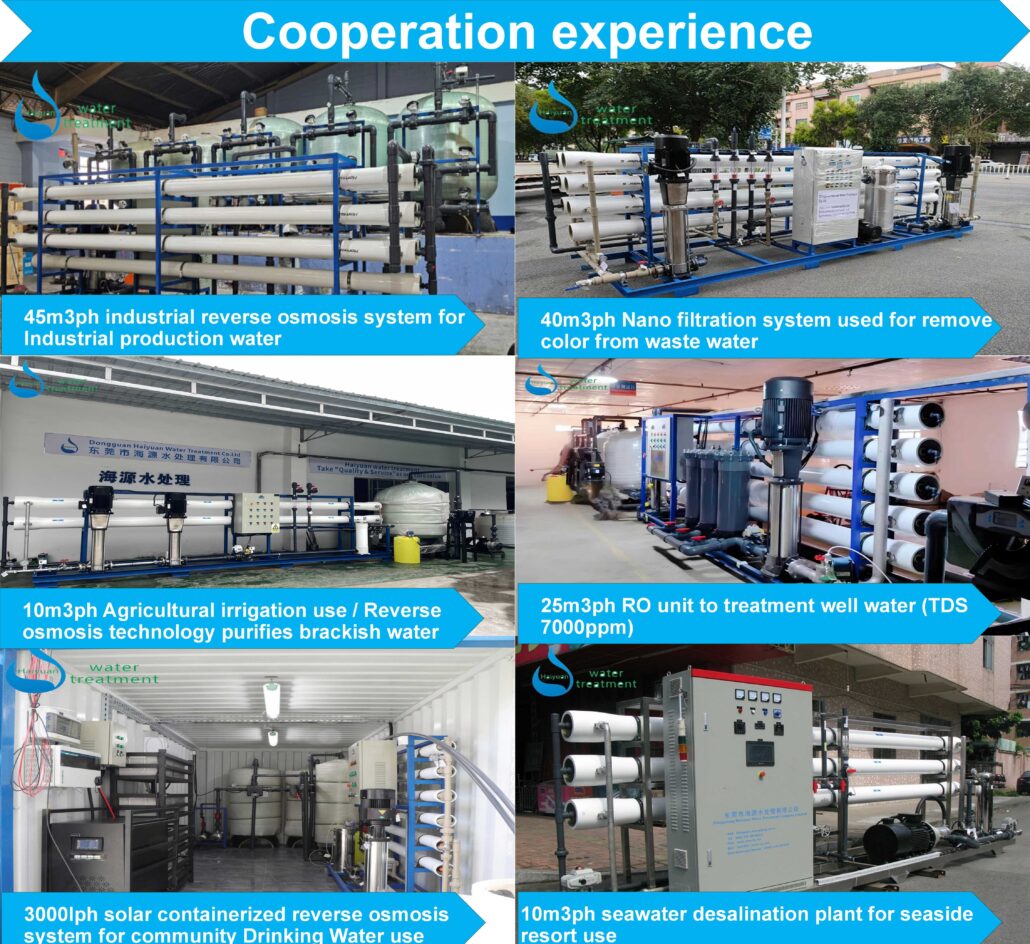
Conclusion
A reverse osmosis water machine is one of the most reliable and effective technologies for water purification. Whether for domestic, commercial, or industrial use, it guarantees safe and clean water at a sustainable cost. For businesses and communities facing water challenges, investing in a customized RO system is a long-term solution that delivers both health and economic benefits.

